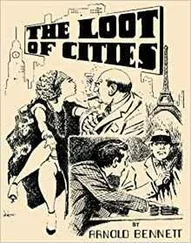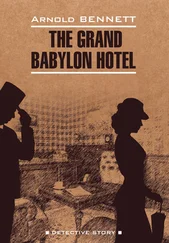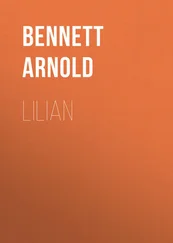Arnold Bennett - Riceyman Steps
Здесь есть возможность читать онлайн «Arnold Bennett - Riceyman Steps» — ознакомительный отрывок электронной книги совершенно бесплатно, а после прочтения отрывка купить полную версию. В некоторых случаях можно слушать аудио, скачать через торрент в формате fb2 и присутствует краткое содержание. Жанр: unrecognised, на английском языке. Описание произведения, (предисловие) а так же отзывы посетителей доступны на портале библиотеки ЛибКат.
- Название:Riceyman Steps
- Автор:
- Жанр:
- Год:неизвестен
- ISBN:нет данных
- Рейтинг книги:3 / 5. Голосов: 1
-
Избранное:Добавить в избранное
- Отзывы:
-
Ваша оценка:
- 60
- 1
- 2
- 3
- 4
- 5
Riceyman Steps: краткое содержание, описание и аннотация
Предлагаем к чтению аннотацию, описание, краткое содержание или предисловие (зависит от того, что написал сам автор книги «Riceyman Steps»). Если вы не нашли необходимую информацию о книге — напишите в комментариях, мы постараемся отыскать её.
Riceyman Steps — читать онлайн ознакомительный отрывок
Ниже представлен текст книги, разбитый по страницам. Система сохранения места последней прочитанной страницы, позволяет с удобством читать онлайн бесплатно книгу «Riceyman Steps», без необходимости каждый раз заново искать на чём Вы остановились. Поставьте закладку, и сможете в любой момент перейти на страницу, на которой закончили чтение.
Интервал:
Закладка:
Arnold Bennett
Riceyman Steps
The story takes place in 1919-1920 and deals with the final year in the life of its main character, Henry Earlforward, a miser, who keeps a second-hand bookshop in the Clerkenwell area of London. Henry marries Violet Arb, a widow who keeps a neighbouring shop, and who sees in Henry a financially secure future. Henry's parsimony drives them into an increasingly wretched existence. Their lives are contrasted to that of their maid servant Elsie Sprickett and it is she, despite her extreme poverty, who brings life and a future to the bittersweet tale.
PUBLISHER NOTES:
Quality of Life, Freedom, More time with the ones you Love.
Visit our website: LYFREEDOM.COM
Chapter
1
Riceyman steps
On an autumn afternoon of 1919 a hatless man with a slight limp might have been observed ascending the gentle, broad acclivity of Riceyman Steps, which lead from King's Cross Road up to Riceyman Square, in the great metropolitan industrial district of Clerkenwell. He was rather less than stout and rather more than slim. His thin hair had begun to turn from black to grey, but his complexion was still fairly good, and the rich, very red lips, under a small greyish moustache and over a short, pointed beard, were quite remarkable in their suggestion of vitality. The brown eyes seemed a little small; they peered at near objects. As to his age, an experienced and cautious observer of mankind, without previous knowledge of this man, would have said no more than that he must be past forty. The man himself was certainly entitled to say that he was in the prime of life. He wore a neat dark-grey suit, which must have been carefully folded at nights, a low, white, starched collar, and a "made" black tie that completely hid the shirt-front; the shirt-cuffs could not be seen. He was shod in old, black leather slippers, well polished. He gave an appearance of quiet, intelligent, refined and kindly prosperity; and in his little eyes shone the varying lights of emotional sensitiveness.
Riceyman Steps, twenty in number, are divided by a half-landing into two series of ten. The man stopped on the half-landing and swung round with a casual air of purposelessness which, however, concealed, imperfectly, a definite design. The suspicious and cynical, slyly watching his movements, would have thought: "What's that fellow after?"
A man interested in a strange woman acquires one equine attribute—he can look in two directions at once. This man could, and did, look in two directions at once.
Below him and straight in front he saw a cobbled section of King's Cross Road—a hell of noise and dust and dirt, with the County of London tram-cars, and motor-lorries and heavy horse-drawn vans sweeping north and south in a vast clangour of iron thudding and grating on iron and granite, beneath the bedroom windows of a defenceless populace. On the far side of the road were, conspicuous to the right, the huge, red Nell Gwynn Tavern, set on the site of Nell's still huger palace, and displaying printed exhortations to buy fruity Portuguese wines and to attend meetings of workers; and, conspicuous to the left, red Rowton House, surpassing in immensity even Nell's vanished palace, divided into hundreds and hundreds of clean cubicles for the accommodation of the defeated and the futile at a few coppers a night, and displaying on its iron façade a newspaper promise to divulge the names of the winners of horse-races. Nearer to the man who could look two ways lay the tiny open space (not open to vehicular traffic) which was officially included in the title "Riceyman Steps." At the south corner of this was a second-hand bookseller's shop, and at the north an abandoned and decaying mission-hall; both these abutted on King's Cross Road. Then, on either hand, farther from the thoroughfare and nearer the steps, came a few private houses with carefully curtained windows, and one other shop—a confectioner's. And next, also on either hand, two business "yards" full of lorries, goods, gear, and the hum of hidden machinery. And the earth itself faintly throbbed; for, to the vibrations of traffic and manufacture, the Underground Railway, running beneath Riceyman Steps, added the muffled uproar of its subterranean electric trains.
While gazing full at the spectacle of King's Cross Road the man on the steps peered downwards on his right at the confectioner's shop, which held the woman who had begun to inflame him. He failed to descry her, but his thoughts pleasantly held her image, and she held his thoughts. He dreamed that one day he would share with her sympathetic soul his own vision of this wonderful Clerkenwell in which he lived and she now lived. He would explain to her eager ear that once Clerkenwell was a murmuring green land of medicinal springs, wells, streams with mills on their banks, nunneries, aristocrats, and holy clerks who presented mystery-plays. Yes, he would tell her about the drama of Adam and Eve being performed in the costume of Adam and Eve to a simple and unshocked people. (Why not? She was a widow and no longer young.) And he would point out to her how the brown backs of the houses which fronted on King's Cross Road resembled the buttressed walls of a mighty fortress, and how the grim, ochreish, unwindowed backs of the houses of Riceyman Square (behind him) looked just like lofty, mediæval keeps. And he would relate to her the story of the palace of Nell Gwynn, contemporary of Louise de la Vallière, and dividing with Louise the honour of being the first and most ingenuous of modern vampires. Never before had he had the idea of unfolding his mind on these enthralling subjects to a woman.
Rain began to fall. It fell on the bargain-books exposed in a stand outside the bookseller's shop. The man did not move. Then a swift gentlemanly person stepped suddenly out of King's Cross Road into the approach to the steps, and after a moment's hesitation entered the shop. The man on the steps quietly limped down and followed the potential customer into the shop, which was his own.
Chapter
2
The customer
The shop had one window in King's Cross Road, but the entrance, with another window, was in Riceyman Steps. The King's Cross Road window held only cheap editions, in their paper jackets, of popular modern novels, such as those of Ethel M. Dell, Charles Garvice, Zane Grey, Florence Barclay, Nat Gould, and Gene Stratton Porter. The side window was set out with old books, first editions, illustrated editions, and complete library editions in calf or morocco of renowned and serious writers, whose works, indispensable to the collections of self-respecting book-gentlemen (as distinguished from bookmen), have passed through decades of criticism into the impregnable paradise of eternal esteem. The side window was bound to attract the attention of collectors and bibliomaniacs. It seemed strangely, even fatally, out of place in that dingy and sordid neighbourhood where existence was a dangerous and difficult adventure in almost frantic quest of food, drink and shelter, where the familiar and beloved landmarks were public-houses, and where the immense majority of the population read nothing but sporting prognostications and results, and, on Sunday mornings, accounts of bloody crimes and juicy sexual irregularities.
Nevertheless, the shop was, in fact, well placed in Riceyman Steps. It had a picturesque air, and Riceyman Steps also had a picturesque air, with all its outworn shabbiness, grime and decay. The steps leading up to Riceyman Square, the glimpse of the Square at the top, with its church bearing a massive cross on the west front, the curious perpendicular effects of the tall, blind, ochreish houses—all these touched the imagination of every man who had in his composition any unusually strong admixture of the universal human passion—love of the past. The shop reinforced the appeal of its environment. The shop was in its right appropriate place. To the secret race of collectors always ravenously desiring to get something for much less than its real value, the window in Riceyman Steps was irresistible. And all manner of people, including book-collectors, passed along King's Cross Road in the course of a day. And all the collectors upon catching sight of the shop exclaimed in their hearts: "What a queer spot for a bookshop! Bargains!… " Moreover, the business was of old date and therefore had firmly established connexions quite extra-local. Scores of knowing persons knew about it, and were proud of their knowledge. "What!" they would say with affected surprise to acquaintances of their own tastes. "You don't know Riceyman Steps, King's Cross Road? Best hunting-ground in London!" The name "Riceyman" on a signboard, whose paint had been flaking off for twenty years, also enhanced the prestige of the shop, for it proved ancient local associations. Riceyman must be of the true ancient blood of Clerkenwell.
Читать дальшеИнтервал:
Закладка:
Похожие книги на «Riceyman Steps»
Представляем Вашему вниманию похожие книги на «Riceyman Steps» списком для выбора. Мы отобрали схожую по названию и смыслу литературу в надежде предоставить читателям больше вариантов отыскать новые, интересные, ещё непрочитанные произведения.
Обсуждение, отзывы о книге «Riceyman Steps» и просто собственные мнения читателей. Оставьте ваши комментарии, напишите, что Вы думаете о произведении, его смысле или главных героях. Укажите что конкретно понравилось, а что нет, и почему Вы так считаете.












